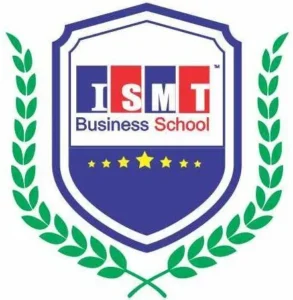Here’s something most people don’t realize: HR isn’t just about hiring people and processing payroll anymore. Today’s HR professionals are strategic business partners who shape company culture, drive organizational change, and directly impact the bottom line. And companies are willing to pay well for people who can do this effectively.
If you’re considering a pgdm in hr, you’re looking at one of the most dynamic and recession-proof career paths available. While tech roles come and go with market cycles, every company—from startups to multinational corporations—needs skilled HR professionals. Always.
But here’s the thing: not all HR programs are created equal. Choosing the right training makes the difference between landing in a boring admin role versus becoming a strategic leader who actually influences business decisions.
Let’s break down everything you need to know about PGDM in HR—the real benefits, what makes Mumbai institutes stand out, and most importantly, whether this career path actually delivers on its promises.
What Exactly is PGDM in HR?
Think of pgdm in hr as your fast-track into human resource management at the strategic level. Unlike a regular MBA that gives you broad business knowledge, this program zeroes in specifically on managing people, organizational behavior, talent strategy, and everything that makes companies actually function.
The program typically runs two years and covers everything from recruitment strategies and performance management to labor laws and employee relations. But the best part? It’s designed to be practical, not just theoretical. You’re learning skills you’ll use from day one at work.
Here’s what you’ll typically study:
Year One (Building Foundations): Organizational behavior and psychology—why people act the way they do at work. Talent acquisition and recruitment strategies—finding the right people for the right roles. Training and development—helping employees grow their skills. Compensation and benefits design—figuring out fair pay structures. HR analytics and metrics—using data to make better people decisions.
Year Two (Strategic Depth): Strategic HRM—aligning people strategy with business goals. Change management—guiding organizations through transitions. Labor laws and industrial relations—staying compliant and handling unions. Leadership development—growing future leaders from within. Performance management systems—measuring and improving employee contribution.
The difference between this and a regular business degree? You’re not learning to be a generalist who knows a bit about everything. You’re becoming a specialist who can walk into any organization and immediately add value to their people operations.
Why Choose PGDM in HR as Your Career Path?
Let’s talk honestly about whether this career actually makes sense in 2025.
The Demand Is Real (And Growing)
Every company needs HR, but not every company has good HR. That gap creates opportunity. Organizations across sectors—IT, manufacturing, healthcare, finance, startups—are all hunting for professionals who truly understand modern HR practices.
Current market data shows HR managers earning between ₹4-12 lakhs annually at entry to mid-level, with senior HR leaders pulling ₹15-30 lakhs or more. International opportunities push these numbers even higher. But here’s what matters more: the career trajectory is solid. Start as an HR executive, move to HR business partner within 3-4 years, then into managerial roles by year 6-7.
You’re Working With People, Not Just Spreadsheets
If you’re someone who gets energy from interacting with others, HR might be your perfect fit. Yes, there’s data analysis and policy work, but at its core, you’re helping people navigate their careers, resolving conflicts, and creating workplaces where people actually want to be.
Some days you’re interviewing candidates and spotting talent. Other days you’re mediating between teams or designing learning programs. The variety keeps things interesting, unlike roles where you’re doing the same task repeatedly.
The Skills Transfer Everywhere
Say you eventually decide HR isn’t for you (rare, but it happens). The skills you build—negotiation, communication, conflict resolution, data analysis, strategic thinking—work in almost any business context. Many HR professionals transition into consulting, training and development, organizational coaching, or even start their own businesses.
You’re building a foundation that’s valuable regardless of where your career ultimately goes.
Future Scope Is Genuinely Strong
Pdgm in hr future scope looks particularly promising for several reasons. First, businesses are finally recognizing that culture and people management directly drive financial results. Companies with strong HR practices consistently outperform competitors.
Second, HR is getting more sophisticated. Modern HR professionals use analytics, AI tools for recruitment, employee experience platforms, and data-driven decision making. This evolution means the field isn’t getting automated away—it’s getting more strategic and better paid.
Third, regulatory complexity is increasing. Labor laws, compliance requirements, diversity mandates—companies need experts who can navigate this landscape without landing them in legal trouble.
What Makes Mumbai Stand Out for PGDM HR Courses?
If you’re searching “pgdm hr courses in mumbai,” you’re onto something. Mumbai offers specific advantages for HR education and career launches.
Industry Density and Networking
Mumbai is India’s financial capital and home to countless corporate headquarters, multinational companies, consulting firms, and fast-growing startups. This concentration creates unmatched networking opportunities and industry exposure.
Guest lectures from actual HR leaders at major corporations. Live projects with real companies solving actual HR challenges. Internship opportunities across diverse industries. Recruitment drives where multiple companies interview on campus. Alumni networks deeply embedded across Mumbai’s corporate landscape.
These connections aren’t just nice-to-haves. They’re how you actually land your first job and build your career network.
Quality of Programs Available
Mumbai hosts several institutes known specifically for management education. The competition pushes quality up—programs have to deliver real results or students simply won’t enroll.
Top pgdm hr courses in mumbai typically include partnerships with industry bodies, certifications that employers actually recognize, faculty who’ve worked in corporate HR (not just academic instructors), and placement cells that maintain strong corporate relationships.
Cost-Benefit Sweet Spot
Compared to Delhi or Bangalore, Mumbai offers competitive program costs while providing access to India’s largest job market. You’re investing in education while positioned right where the opportunities are.
Plus, living in Mumbai while studying means you’re already building the professional network and city familiarity that pays off when you start your career here.
What Is the Best Institute for HR in PGDM?
This is the question every prospective student asks: “what is the best institute for hr in pgdm?”
Here’s the honest answer: “best” depends on what you’re optimizing for. But there are clear criteria that separate excellent programs from mediocre ones.
Look for Industry-Connected Faculty
The best HR programs employ instructors who’ve actually worked in corporate HR, not just academics who’ve only taught. You want to learn from people who’ve navigated real organizational politics, handled actual labor disputes, and built talent strategies that either succeeded or failed.
Ask about faculty backgrounds during campus visits. Do they have corporate experience? Are they consultants alongside teaching? Can they share real war stories, not just textbook cases?
Assess Placement Track Records
Don’t accept vague claims like “excellent placement support.” Ask for specific data:
- What percentage of last batch got placed within 6 months?
- What’s the average starting salary for HR roles specifically?
- Which companies recruited from campus?
- How many students got multiple offers?
Quality programs transparently share this data. Programs making excuses probably don’t have impressive numbers to share.
Check Curriculum Modernity
HR is evolving rapidly. Programs teaching outdated practices won’t prepare you for actual workplace realities. Look for curriculum that includes:
- HR analytics and people metrics
- Digital HR tools and platforms
- Diversity, equity, and inclusion practices
- Remote work and hybrid team management
- Employee experience design
- Agile HR practices
If the syllabus looks like it hasn’t been updated since 2015, keep looking.
Evaluate Beyond Just Academics
The best programs offer more than classroom learning. Look for:
Live projects with real companies solving actual HR challenges, not just hypothetical cases.
Industry certifications integrated into the program—SHRM, CIPD, or other recognized credentials.
Soft skills development—communication training, presentation skills, negotiation practice.
Internship mandates—ensuring you get hands-on experience before graduating.
Alumni network strength—previous graduates who can help with job referrals and career guidance.
These elements transform academic learning into career-ready capability.
ISMT Business School’s PGDM in HR: What Makes It Different
Among pgdm in hr institute near me options in Mumbai, ISMT Business School offers a comprehensive program specifically designed for students serious about building HR careers.
Practical Learning With Industry Exposure
The curriculum emphasizes hands-on learning through multiple channels:
Live company projects where student teams solve real HR challenges for actual organizations.
Guest lectures from HR leaders at major corporations sharing current practices and trends.
Industry visits to see HR operations firsthand at leading companies.
Internship mandates ensuring every student gains workplace experience before graduating.
Case study methodology using real-world scenarios, not just textbook examples.
This practical focus means you’re developing applicable skills, not just theoretical knowledge.
Specialization Flexibility
While focusing on HR, ISMT allows students to develop secondary expertise in areas like finance, marketing, or operations. This versatility makes you more valuable to employers.
Many HR roles require understanding of business finance (for compensation strategy), marketing principles (for employer branding), or operations knowledge (for workforce planning). Having this breadth alongside HR depth sets you apart from single-dimension candidates.
Comprehensive Career Support
ISMT’s placement cell actively connects students with hiring organizations across industries:
On-campus recruitment drives where companies conduct interviews directly at the institute.
Resume and LinkedIn optimization helping you present your profile professionally.
Mock interviews and group discussions preparing you for actual recruitment processes.
Soft skills training covering communication, presentation, and professional etiquette.
Alumni mentorship connecting students with graduates working across corporate India.
This support doesn’t stop at graduation—the placement team continues helping until you’re successfully placed in suitable roles.
Mumbai Location Advantage
Located in Borivali West, ISMT provides easy access from across Mumbai while being in India’s corporate capital. You’re surrounded by companies hiring HR professionals, making internships, projects, and final placements substantially easier.
The Mumbai ecosystem means regular interaction with industry professionals, attendance at HR conferences and events, and building a network that becomes invaluable as your career progresses.
Real Career Paths After PGDM in HR
Let’s talk actual jobs, not just vague “opportunities.”
HR Generalist (Starting Point for Most)
Fresh PGDM HR graduates typically start as HR Executives or HR Generalists, handling various HR functions across recruitment, onboarding, employee relations, and compliance. Starting salaries range ₹3.5-6 lakhs annually depending on company size and location.
This generalist phase typically lasts 2-3 years while you figure out which HR specialization resonates most with you.
Specialized HR Roles (Years 3-5)
After gaining experience, most professionals specialize:
Talent Acquisition Specialist focused entirely on recruitment and hiring strategy. Growing companies constantly need sourcing experts who can find and attract top talent.
Learning & Development Manager designing training programs, leadership development, and career pathing for employees. Particularly rewarding if you enjoy teaching and seeing people grow.
Compensation & Benefits Analyst working on salary structures, incentive designs, and total rewards strategy. Numbers-oriented HR professionals thrive here.
Employee Relations Manager handling workplace conflicts, grievances, union relations, and maintaining positive work culture. Requires strong interpersonal and mediation skills.
Specialized roles typically pay ₹6-10 lakhs annually with 3-5 years experience.
Strategic HR Leadership (Years 6-10)
With proven track record and business acumen, you move into leadership:
HR Business Partner working directly with business unit leaders, aligning HR strategy with department goals. You’re at the table when business decisions get made.
Head of Talent owning entire recruitment and talent development strategy for the organization.
Head of People Operations managing all HR functions and leading the HR team.
Leadership roles offer ₹12-25 lakhs annually or more, often with stock options at startups or performance bonuses at larger corporations.
Beyond Traditional HR
Many HR professionals eventually pivot into adjacent fields:
Organizational Development Consultant helping companies restructure, improve culture, or navigate change.
Executive Coach working one-on-one with leaders to develop their capabilities.
HR Tech Product Manager at companies building HR software platforms.
Independent HR Consultant serving multiple clients on specific projects.
The foundation from your PGDM HR program enables all these paths.
Making Your Decision: Is PGDM in HR Right for You?
Let’s do a quick self-assessment. PGDM in HR probably makes sense for you if:
You genuinely enjoy working with people and understanding what makes them tick. You’re interested in both the human psychology side and the business strategy side. You want a career that’s stable but also evolving with new challenges. You’re comfortable with ambiguity—people problems don’t have clean yes/no answers. You can handle occasional conflict or difficult conversations professionally.
It probably doesn’t make sense if:
You strongly prefer working with data, systems, or technology over people. You want a purely technical career with minimal human interaction. You’re looking for the fastest possible path to high earnings (finance or tech might be better). You find organizational politics and interpersonal dynamics exhausting rather than interesting.
There’s no judgment either way. Better to choose something that genuinely fits your personality and interests.
Ready to Start Your HR Career Journey?
ISMT Business School offers one of Mumbai’s most comprehensive PGDM programs with specialized HR focus. The combination of AICTE approval, industry-connected curriculum, practical learning emphasis, and strong placement support positions graduates for successful HR careers.
Located in Borivali West, the institute is easily accessible across Mumbai while providing modern facilities, experienced faculty, and the networking opportunities Mumbai’s corporate ecosystem offers.
Want to learn more about ISMT’s PGDM in HR program?
Website: ismtindia.com
Call: 9930526101 / 8976055540
Email: info@ismtindia.com
Address: ISMT, 6th Floor, Sai Lee International, Old MHB Colony, Near Don Bosco Signal, Gorai Road, Borivali West, Mumbai, Maharashtra 400092
Talk to their admission counselors about curriculum specifics, placement track records, and whether the program aligns with your career goals. Visit the campus, meet faculty members, and speak with current students to get honest perspectives.
The HR field isn’t going anywhere. Companies will always need people who can attract talent, develop employees, maintain culture, and navigate the human side of business. The question isn’t whether HR offers good careers—it demonstrably does. The question is whether you’re ready to commit to proper training that positions you for success.
Your career in shaping organizational success through people management can start here. Make it count.





